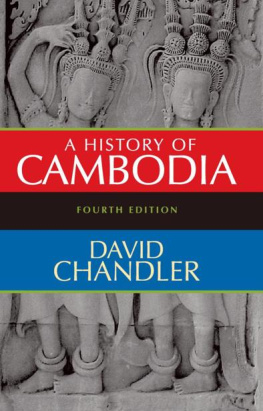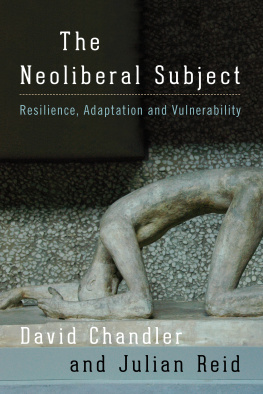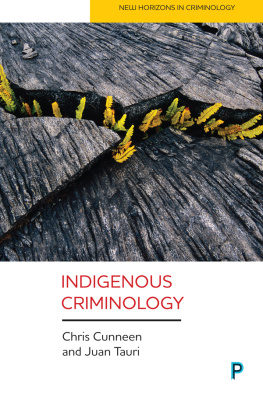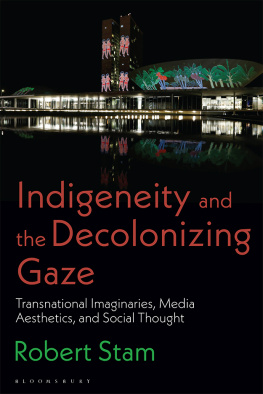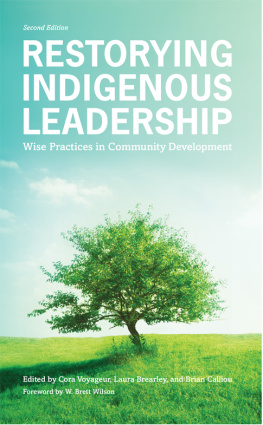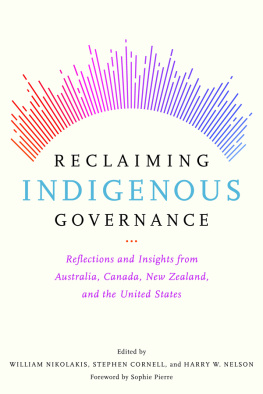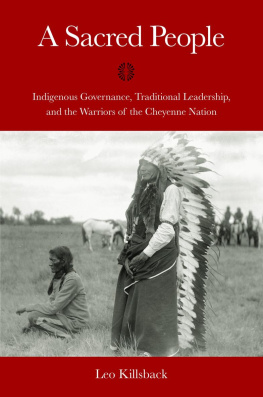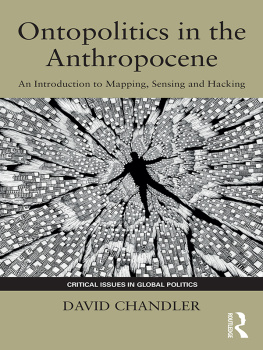David Chandler - Becoming Indigenous: Governing Imaginaries in the Anthropocene
Here you can read online David Chandler - Becoming Indigenous: Governing Imaginaries in the Anthropocene full text of the book (entire story) in english for free. Download pdf and epub, get meaning, cover and reviews about this ebook. year: 2019, publisher: Rowman & Littlefield Publishers, genre: Politics. Description of the work, (preface) as well as reviews are available. Best literature library LitArk.com created for fans of good reading and offers a wide selection of genres:
Romance novel
Science fiction
Adventure
Detective
Science
History
Home and family
Prose
Art
Politics
Computer
Non-fiction
Religion
Business
Children
Humor
Choose a favorite category and find really read worthwhile books. Enjoy immersion in the world of imagination, feel the emotions of the characters or learn something new for yourself, make an fascinating discovery.

- Book:Becoming Indigenous: Governing Imaginaries in the Anthropocene
- Author:
- Publisher:Rowman & Littlefield Publishers
- Genre:
- Year:2019
- Rating:5 / 5
- Favourites:Add to favourites
- Your mark:
- 100
- 1
- 2
- 3
- 4
- 5
Becoming Indigenous: Governing Imaginaries in the Anthropocene: summary, description and annotation
We offer to read an annotation, description, summary or preface (depends on what the author of the book "Becoming Indigenous: Governing Imaginaries in the Anthropocene" wrote himself). If you haven't found the necessary information about the book — write in the comments, we will try to find it.
Becoming Indigenous: Governing Imaginaries in the Anthropocene — read online for free the complete book (whole text) full work
Below is the text of the book, divided by pages. System saving the place of the last page read, allows you to conveniently read the book "Becoming Indigenous: Governing Imaginaries in the Anthropocene" online for free, without having to search again every time where you left off. Put a bookmark, and you can go to the page where you finished reading at any time.
Font size:
Interval:
Bookmark:
David Chandler is Professor of International Relations at the University of Westminster, UK. He was the founding editor of the Journal of Intervention and Statebuilding and currently edits the journal Resilience: International Policies, Practices and Discourses . His research interests focus on analysis of policy interventions in the international arena, including humanitarianism, statebuilding and the promotion of resilience. He is also interested in contemporary theories challenging the anthropocentrism of modernist thought, particularly in relation to the Anthropocene, the ontopolitics of critique and new technologies, including algorithmic governance, sensorial assemblages and Big Data. He is a major authority in his field and has published around twenty books (authored and edited) and around 200 chapters and journal articles.
Julian Reid is Chair and Professor of International Relations at the University of Lapland, Finland. He is renowned for his advance of the theory of biopolitics, contributions to cultural theory, postcolonial and post-structural thought, critique of liberalism, and seminal deconstruction of resilience. He is co-editor of the journal Resilience: Policies, Practices and Discourses (with David Chandler, Melinda Cooper and Bruce Braun). He is a member of the RELATE Center of Excellence, based at the University of Oulu, Finland, and a member of the Advisory Board to the Histories of Violence project.

Published by Rowman & Littlefield International, Ltd.
6 Tinworth Street, London, SE11 5AL, UK
www.rowmaninternational.com
Rowman & Littlefield International Ltd. is an affiliate of Rowman & Littlefield
4501 Forbes Boulevard, Suite 200, Lanham, Maryland 20706, USA
With additional offices in Boulder, New York, Toronto (Canada), and Plymouth (UK)
www.rowman.com
Copyright David Chandler and Julian Reid, 2019
All rights reserved . No part of this book may be reproduced in any form or by any electronic or mechanical means, including information storage and retrieval systems, without written permission from the publisher, except by a reviewer who may quote passages in a review.
British Library Cataloguing in Publication Data
A catalogue record for this book is available from the British Library
ISBN: HB 978-1-78660-571-9
PB 978-1-78660-572-6
Library of Congress Cataloging-in-Publication Data Available
ISBN: 978-1-78660-571-9 (cloth : alk. paper)
ISBN: 978-1-78660-572-6 (pbk. : alk. paper)
ISBN: 978-1-78660-573-3 (electronic)
 The paper used in this publication meets the minimum requirements of American National Standard for Information SciencesPermanence of Paper for Printed Library Materials, ANSI/NISO Z39.48-1992.
The paper used in this publication meets the minimum requirements of American National Standard for Information SciencesPermanence of Paper for Printed Library Materials, ANSI/NISO Z39.48-1992.
This book would not have been possible without the many discussions weve had with various colleagues and the support of several institutions in the field.
David Chandler would like to thank coauthor, Julian Reid, University of Lapland, for the invitation to take part in the Kone Foundation/Finnish Academy project Indigeneity in Waiting (20162020), which enabled a range of international workshop and conference presentations; Marjo Lindroth and Heidi Sinevaara-Niskanen, University of Lapland, who were a vital influence, especially in the early stages, with their workshop at the Centre for the Study of Democracy, University of Westminster, in February 2016; Paulina Tambakaki, University of Westminster, for insights, suggestions and support throughout the writing process; and Olivia Rutazibwa, University of Portsmouth, Pol Bargus-Pedreny, Barcelona Centre for International Affairs, Angela Last, University of Leicester, and Doerthe Rosenow, Oxford Brookes University, for their inspiring work in bringing decolonial thought into relation with the Anthropocene.
Julian Reid would like to thank his colleagues at the University of Lapland, especially Marjo Lindroth and Heidi Sinevaara-Niskanen with whom he has collaborated on the project, Indigeneity in Waiting (20162020). Great thanks are owed to the Kone Foundation and the Finnish Academy for funding this particular research project and from which these ideas grew. Samuli Hurri and the Problematizations research team and their seminar series in the Faculty of Law at the University of Lapland have also been a great source of support toward the end of the book-writing process. The students he has taught and learnt from in masters courses in the International Relations program at the University of Lapland, The Postcolonial Politics of Indigeneity and The International Relations of the Anthropocene , have also provided much provocation to thought.
Opportunities to present these ideas in their early formulation at various other institutions were gratefully received and acted upon. Thanks to Michael Basseler at the University of Giessen in Germany for the invitation to keynote the Indigeneities conference in 2016, and to Magdalena Kmak for the invite to keynote the ETMU conference at the bo Akademi University in Turku, Finland, in 2018. Special thanks are owed to colleagues at Virginia Tech in the United States where Julian Reid spent time in 2017 as a research fellow. In particular, Jim Bohland at the Global Forum in Virginia Tech was a very warm and generous host as well as interlocutor. Geoffrey Whitehall at Acadia University in Canada was also a wonderful host in 2016 when testing out the thesis there. Other places where the ideas in this book were tried out include the University of Helsinki in Finland, Hamburg University in Germany, and the University of Copenhagen in Denmark. Thanks to those colleagues who engaged me there.
Most of all, Julian would like to thank Kirsi whose love and support means so much, and Miro and Kosma whose being is every day a source of such great inspiration. To Lumi, whose arrival as the book reached its completion, he gives all his thanks, for making the future fuller than could otherwise be imagined.
Early versions of some of the ideas presented here can be found in journals and book publications including the following:
David Chandler, The Transvaluation of Critique in the Anthropocene, Global Society 33:1 (2019).
David Chandler, Resilience and the End(s) of the Politics of Adaptation, Resilience: International Politics, Practices and Discourses 7:3 (2019).
David Chandler and Julian Reid, Being in Being: Contesting the Ontopolitics of Indigeneity Today, The European Legacy 23:3 (2018).
Julian Reid, Narrating Indigeneity in the Arctic: The Script of Disaster Resilience versus The Poetics of Autonomy in Nikolas Selheim, Yuliya Zaika and Ilan Kelman (eds.), Arctic Triumph: Northern Innovation and Persistence (Springer, 2019).
Julian Reid, The Clich of Resilience: Governing Indigeneity in the Arctic, Arena Journal 51/52 (2018).
This book is a stand-alone text but the problems it addresses and the arguments it makes are linked directly to those which we developed in our book, The Neoliberal Subject: Resilience, Adaptation and Vulnerability (Rowman & Littlefield, 2016). This book can be read as a development of the themes of The Neoliberal Subject , which provides the basics of the theoretical framework for approaching neoliberalism as a regime of power and its contemporary dependence on discourses of resilience and adaptation. It is this framing that we deploy in this book to problematize discourses on indigeneity, a field of research which was not tackled in The Neoliberal Subject and which itself indicates a shift in the neoliberal framings of crisis and self-responsibility.
Font size:
Interval:
Bookmark:
Similar books «Becoming Indigenous: Governing Imaginaries in the Anthropocene»
Look at similar books to Becoming Indigenous: Governing Imaginaries in the Anthropocene. We have selected literature similar in name and meaning in the hope of providing readers with more options to find new, interesting, not yet read works.
Discussion, reviews of the book Becoming Indigenous: Governing Imaginaries in the Anthropocene and just readers' own opinions. Leave your comments, write what you think about the work, its meaning or the main characters. Specify what exactly you liked and what you didn't like, and why you think so.


